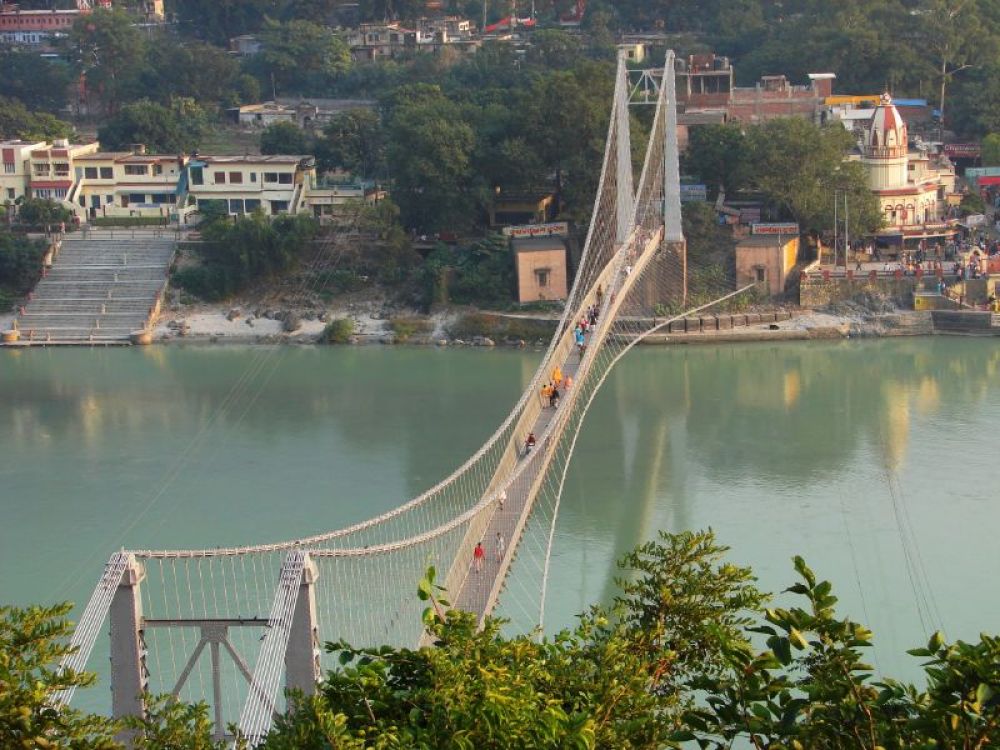

Rishikesh, often referred to as the 'Gateway to the Garhwal Himalayas' and 'Yoga Capital of the World', is a city that has been a significant part of Indian history and spirituality for centuries. Ram Jhula is an iconic landmark and an important aspect of tourism in this holy city. Located in the state of Uttarakhand in Northern India, this suspended bridge across the River Ganges connects Swargashram with Shivananda Ashram and has been a part of Rishikesh's spiritual landscape for decades.
Ram Jhula was built in the 1980s and is younger than its sister bridge, the Laxman Jhula, which dates back to 1929. While the Laxman Jhula holds mythological significance related to Lord Rama's younger brother Laxman, Ram Jhula is named after Lord Rama himself, an important deity in Hindu religion. The bridge has since been an essential crossover point for pilgrims and serves as a symbolic structure reflecting the soul of Rishikesh as a passage between realms, worldly and spiritual.
The area around Ram Jhula has seen significant development, with numerous ashrams, yoga institutes, and vegetarian eateries to cater to the spiritual and holistic lifestyle sought by visitors. The tourism in Rishikesh, and particularly near Ram Jhula, surged post the 1960s after the Beatles visited Maharishi Mahesh Yogi's ashram, now famously known as 'The Beatles Ashram'. This event brought Rishikesh to the limelight of western travelers and subsequently fostered a curiosity that led to the spiritual tourism boom.
In recent years, tourism in Rishikesh, including Ram Jhula, has evolved, accommodating not just spirituality seekers and yoga practitioners but also adventure enthusiasts. Today, Rishikesh is known for rafting, camping, hiking, and bungee jumping, making it popular among a diverse group of tourists. The blend of spiritualism, tranquility, and adventure is a unique proposition of Rishikesh that continues to charm visitors.
Eco-tourism has also been promoted, with many establishments taking initiatives to maintain the natural beauty and ecological balance of the region. The importance of sustainable tourism practices has been recognized, with efforts to reduce commercialization impacts and preserve the city's sanctity.
As part of the Indian government's efforts to boost tourism, Rishikesh, and landmarks like Ram Jhula, have been featured in various campaigns promoting India as an ideal destination for cultural and spiritual tourism. The 'Incredible India' campaign, for instance, puts a spotlight on the spiritual significance of Rishikesh alongside its natural beauty and adventure opportunities, contributing to the increase in both domestic and international travelers.
Today, Ram Jhula stands not only as a bridge but also a testament to Rishikesh's ever-evolving nature as a confluence of heritage, culture, and modern tourism trends. It continues to attract millions of visitors annually, making it a vital component in the mosaic of Indian tourism.